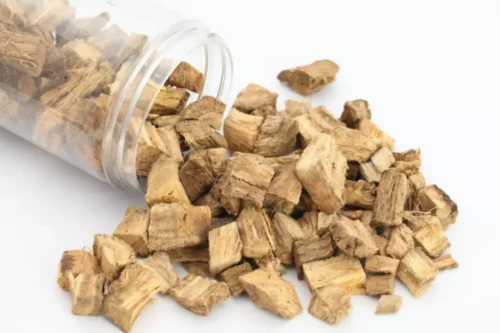
Gluconeogenesis, which also occurs primarily in the liver, involves the formation of new glucose molecules from alanine and glycerol. Alanine is generated during the breakdown of proteins in the muscles, whereas glycerol is formed during the metabolism of certain fat molecules (i.e., triglycerides). Alcohol metabolism in the liver, however, actually shuts down the process of gluconeogenesis and thus the second line of defense against hypoglycemia.

How will alcohol affect my blood sugar control?

If you are unconscious and experiencing severe hypoglycemia, encourage them to call 911 and to stay with you until emergency personnel arrive. And always have breakfast – it will help you manage your blood sugar. If you can’t face food or you’ve been sick, drink as many fluids as you can, including some sugary (non-diet) drinks if your blood sugar levels are low.
- Their pancreas secretes insulin to help the sugar enter the body’s cells, where it is used for energy.
- If someone with diabetes chooses to drink alcohol, the ADA recommends limiting consumption to a moderate intake.
- Once in the bloodstream, alcohol travels to every part of the body, affecting organs and tissues.
- For those with diabetes, it is especially important to limit intake to one drink per day for women and up to two drinks per day for men,” Sheth adds.
- Some medications are not suitable for use alongside alcohol consumption.
Benefits of Alcohol in Type 2 Diabetes
- There are bracelets, keychains, necklaces or even tattoos that can provide this information in an emergency.
- In most cases, people with type 2 diabetes can drink alcohol in moderate amounts.
- If you have a number of these drinks, you can expect to see a rise in blood sugar followed by a steady drop a number of hours later, often whilst asleep.
- “Your relationships are likely improved, and your resilience has increased,” says Dr. Mosquera.
When you live with a chronic condition already, it is wise to take this into account and take the current recommendations to drink moderately seriously. And if you are taking medication for your diabetes or for any other health condition, it’s important to discuss with your health care team any possible effects from mixing alcohol and medication. Diabetic eye disease (i.e., retinopathy) is another troublesome tissue complication of diabetes and one of the leading causes of blindness in the United States today. Good blood sugar and blood pressure control as well as regular eye examinations are essential for the prevention of retinopathy. Heavy alcohol consumption may increase a person’s risk for developing this disease.
How Beer Impacts Your Blood Sugar Levels
Over time, excessive alcohol consumption can reduce the overall effectiveness of insulin. Many people with alcoholic liver disease also have either glucose intolerance or diabetes. Despite the high prevalence of impotence in male diabetics and the fact that many of these men consume alcohol, few studies have evaluated the relationship between alcohol intake and impotence in diabetics. In one study of 275 originally potent diabetic can diabetics get drunk men, heavy drinkers were significantly more likely to develop impotence during the 5-year study period than were moderate drinkers (McCulloch et al. 1984). That effect has been observed in both type 1 and type 2 diabetics as well as in nondiabetics (Arky and Freinkel 1964). Hypoglycemia can have serious, even life-threatening, consequences, because adequate blood sugar levels are needed to ensure brain functioning.
The Straits Times
The symptoms of drunkenness can be very similar to a hypo, which can lead to very dangerous confusion. However, with larger amounts of alcohol, serious hypoglycaemia can occur. You can talk to your healthcare team about how you’re feeling, they’ll be able to give you more advice and support about what might help. Or you might prefer to talk to someone close to you, like a friend or family member. Alcohol can also contain a lot of calories, which can lead to putting on weight.
Carry emergency glucose.
However, excessive alcohol consumption increases the risk of hypoglycemia (low blood sugar), hyperglycemia (high blood sugar), liver disease, and more. Keep reading to learn more about how alcohol affects people with diabetes, including types of alcohol and how alcohol may cause hypoglycemia, or low blood sugar levels. While moderate alcohol consumption lowers blood sugar, heavy consumption is harmful to diabetes and other aspects of health. For many people, the occasional glass of alcohol does not pose a problem. However, for people with diabetes, alcohol consumption can affect blood sugar levels.
- Among their many functions, insulin and glucagon regulate the conversion of fat molecules (i.e., fatty acids) into larger molecules (i.e., triglycerides), which are stored in the fat tissue.
- That sort of double impact can cause blood sugar levels to drop to dangerously low levels, a condition known as hypoglycemia.
- The risks depend on how much alcohol a person consumes, as well as the type.
- After speaking to dietitians and diabetes educators, there is not a clear, direct connection between drinking alcohol and developing type 2 diabetes.
Perhaps some have health conditions that are incompatible with alcohol. Many people believe that living with diabetes means opting out of certain foods and beverages entirely. If you’re wondering whether or not it’s still possible to enjoy a beer when you have diabetes, the answer is yes—but it’s important to know how to do so safely. “The majority of alcohol’s beneficial effect is on improving HDL (good) cholesterol,” says Alan Graber, M.D., Ph.D., FACE, a past president of the American Association of Clinical Endocrinologists (AACE). Studies suggest that one to two alcoholic drinks a day (beer, wine, or spirits) increases HDL an average of 12 percent. “However, the benefit of improving HDL is lost if a person gains weight,” Graber says.
What are the recommended alcohol guidelines for people with diabetes?

